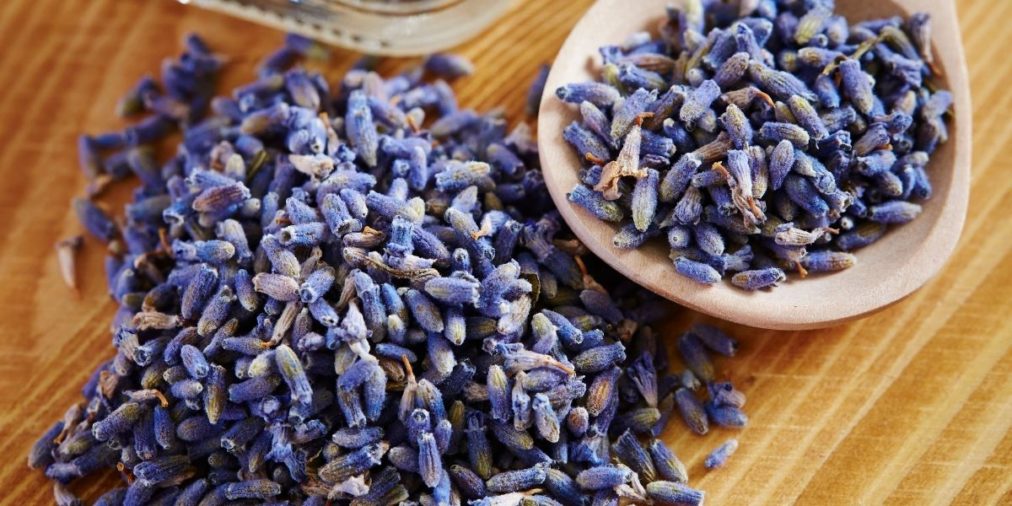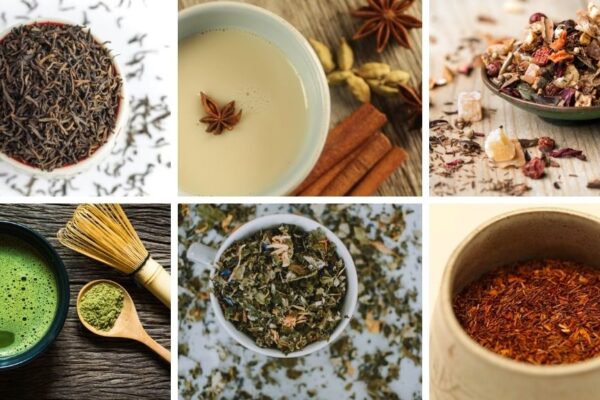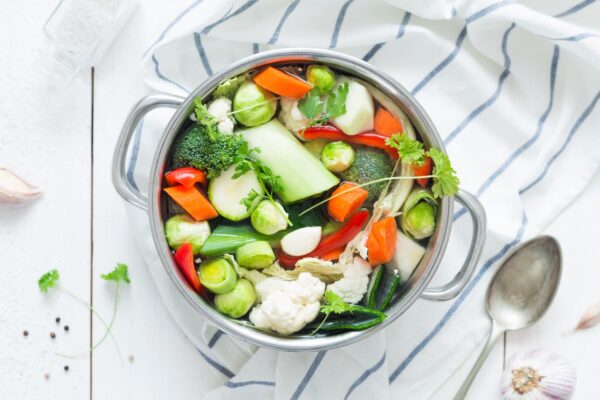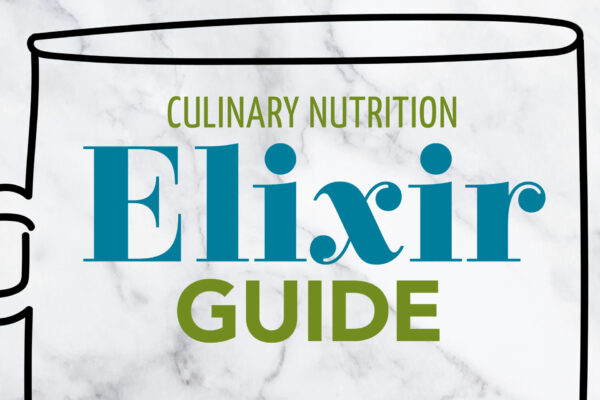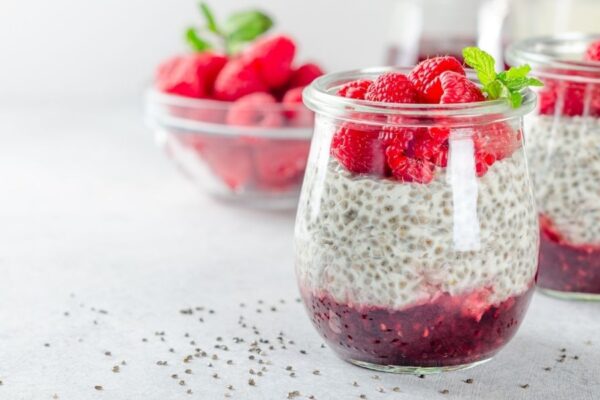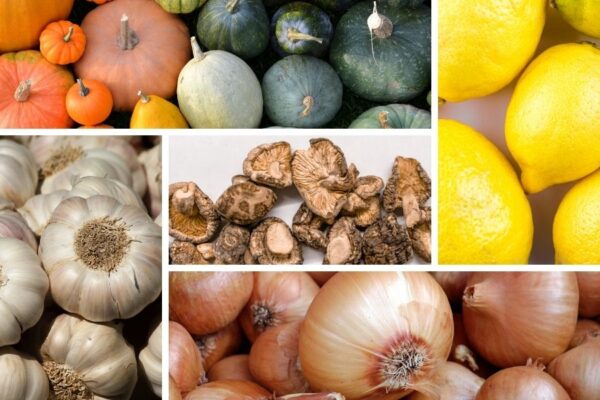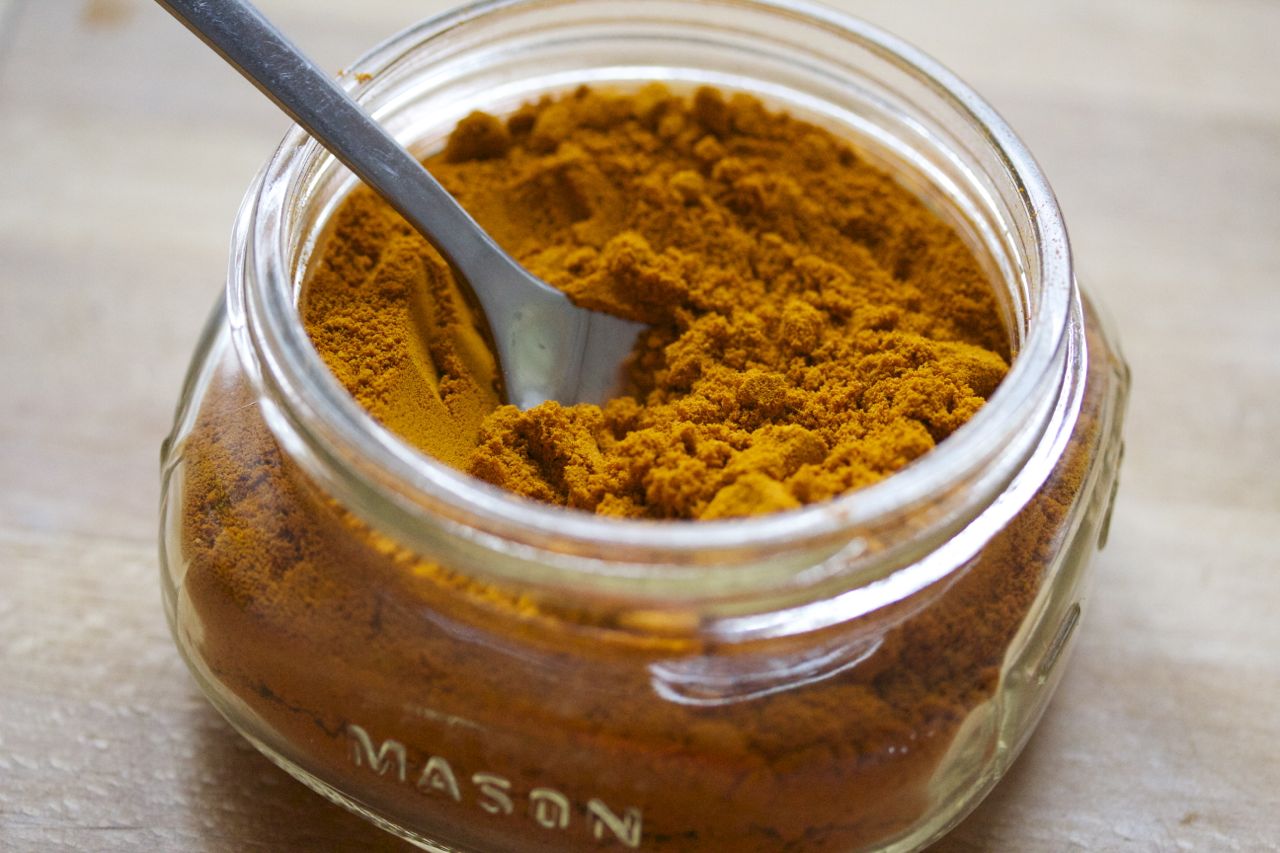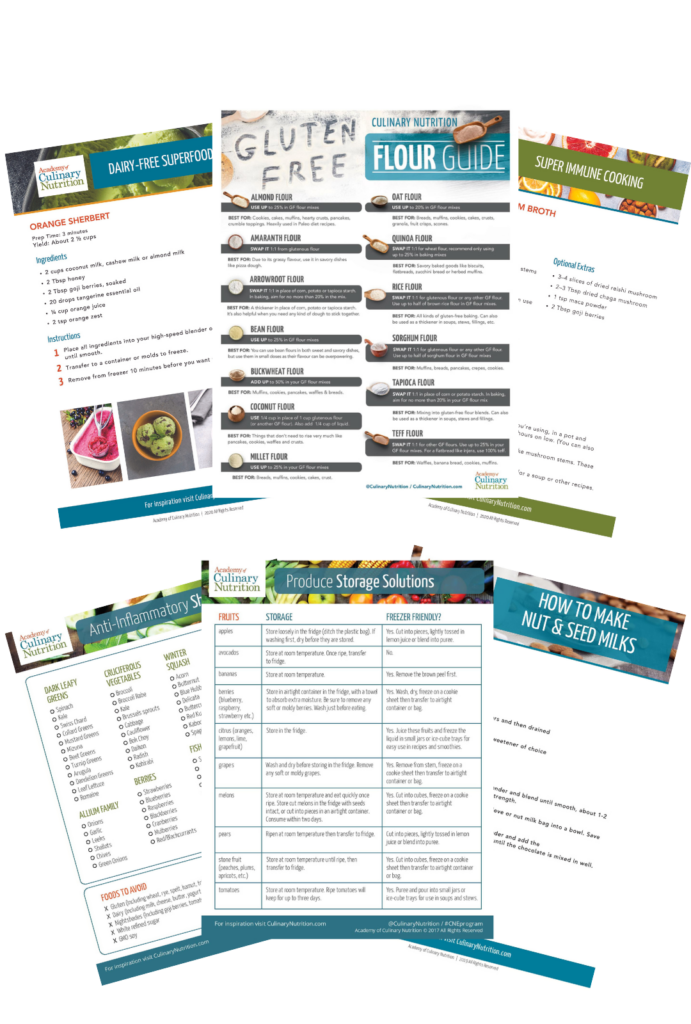15 Herbs Worth Having on Hand
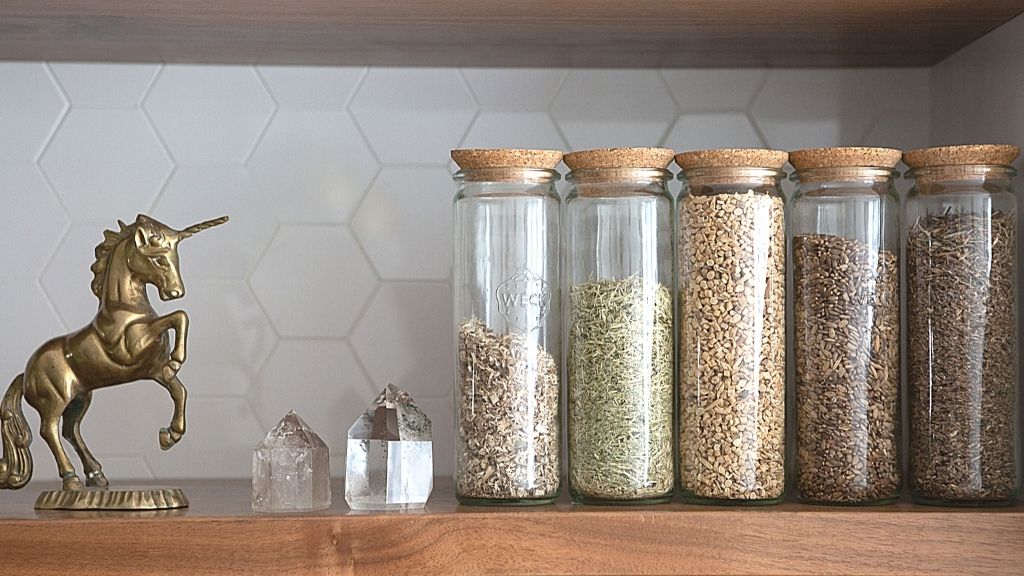
I am a huge fan of liquid nutrition, whether they’re elixirs, smoothies, juices, broths, or teas. I often start and end my day, and usually interrupt it, with an elixir or cup of tea. There are many, many ways we can enhance our beverages (and our health) with key herbs that are easy to find and use. Different herbs produce different actions in the body and so should be selected keeping these actions in mind – and that is what this post is all about.
Herbs for Digestion
Ginger
This is one of my all-time favourite herbs, period. Digestively speaking, it helps to prevent gas and bloating, prompts digestive juices, and addresses an upset stomach and nausea. I have extreme motion sickness, so it’s something I basically have with me at all times. Plus it was very helpful to me when I was pregnant.
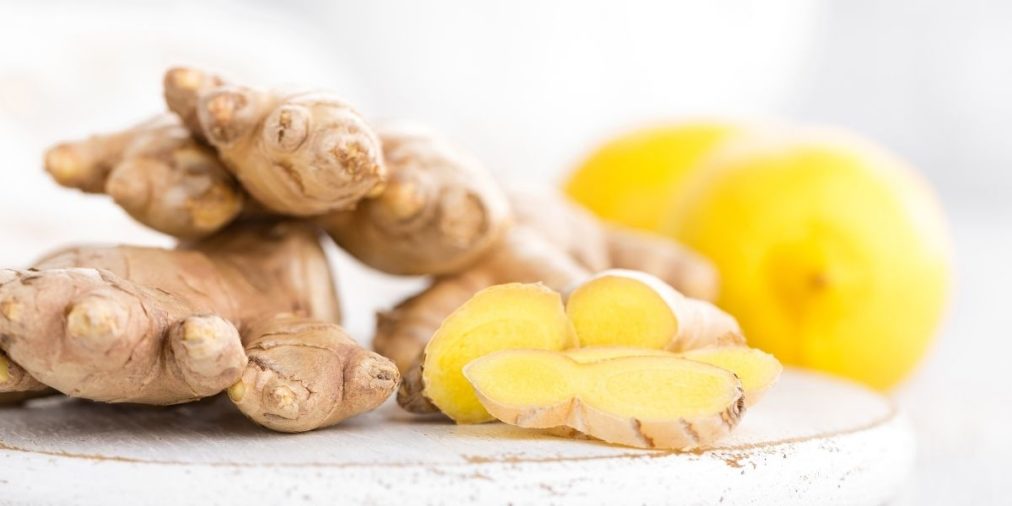
Mint
Mint is a delicious herb that soothes the digestive tract, reduces the severity and length of stomach aches, reduces gas and bloating, and lessens symptoms of irritable bowel syndrome. It’s a versatile herb that can be used in many ways, and it’s very easy to grow (even for those who are gardening newbies like me!).
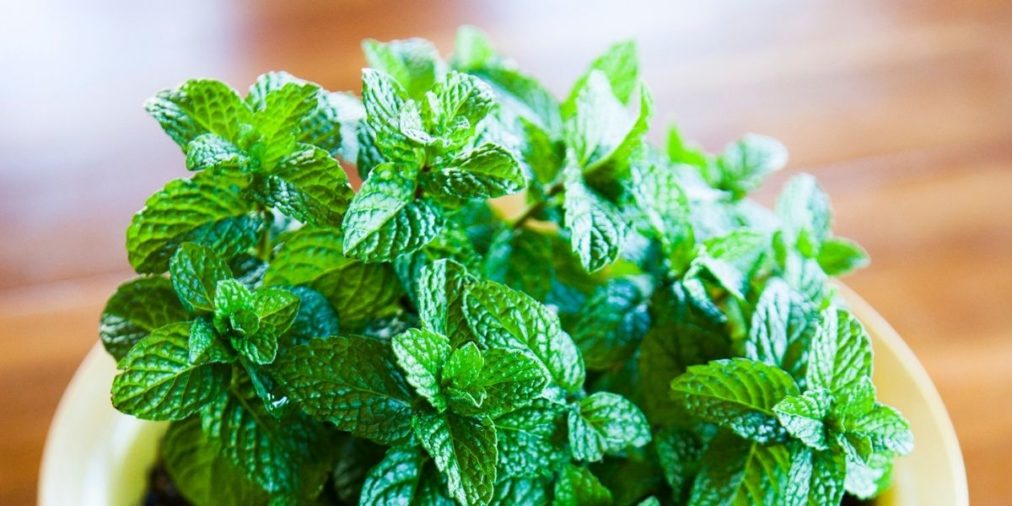
Slippery Elm
Slippery elm is a mucilaginous herb, and like other mucilaginous things like soaked flaxseeds, chia seeds, aloe, and Sea moss, this helps to soothe the digestive tract and alleviate gastrointestinal problems like inflammatory bowel disease (more about that here) and IBS. It also has prebiotic properties, meaning it helps to feed the beneficial bacterial to improve digestive (and immune) health.
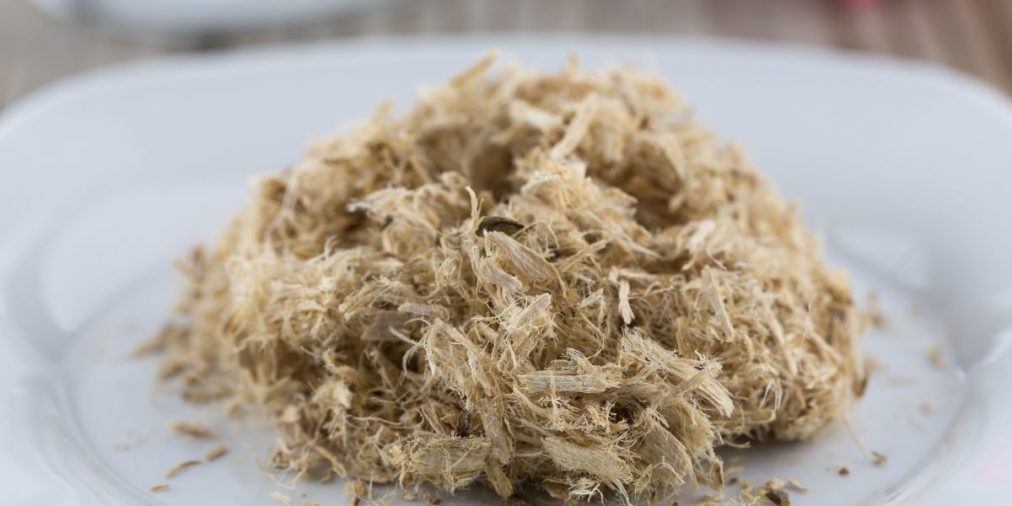
Licorice Root
Licorice helps to soothe the digestive tract and is useful for preventing and addressing different types of ulcers. Its antimicrobial and antibacterial properties help hinder bacterial growth in the gut.
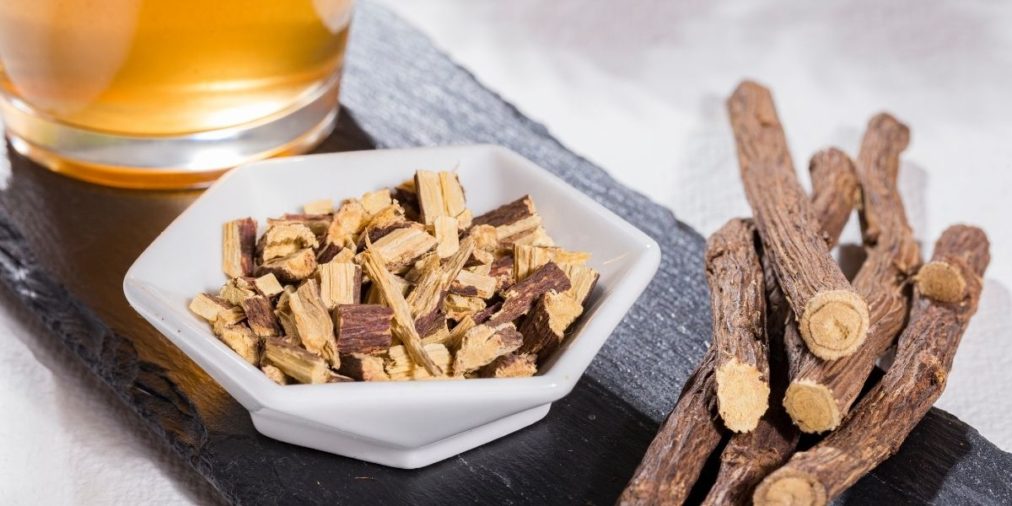
Fennel Seeds
This herb helps to relieve gas, bloating, and flatulence. All great benefits!
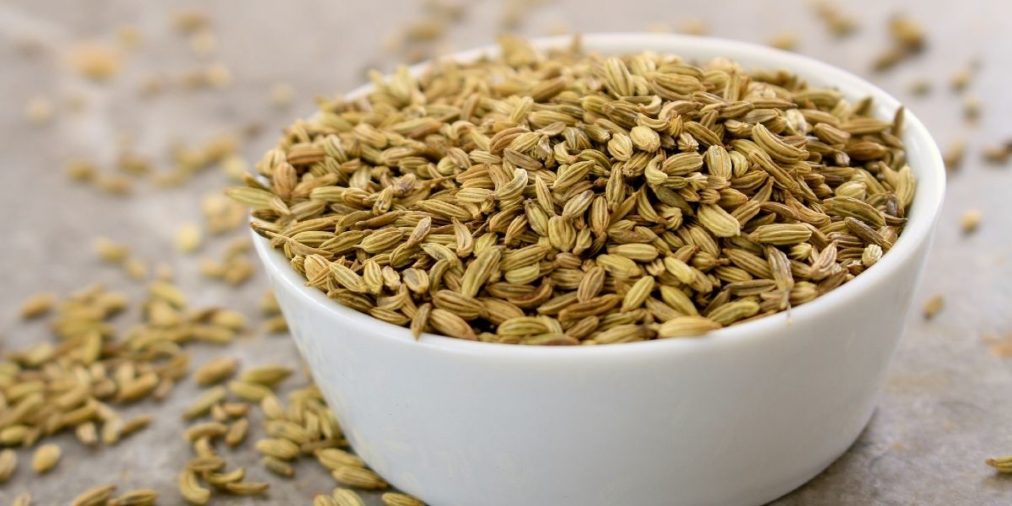
Herbs for Stress/Anxiety
Lavender
Lavender offers a lot of benefits to the nervous system. It helps us feel calmer, reduces anxiety, improves our mood, and helps us sleep. There are a lot of different ways we can use lavender for its effects, including essential oils, culinary teas, infused oils, and beauty care products.
Passionflower
Passionflower is one of my favourite herbs because of its incredible ability to calm the nerves, reduce anxiety, help with insomnia, soothe nervous tension and depress the central nervous system. You can read way more about passionflower in this post of mine.
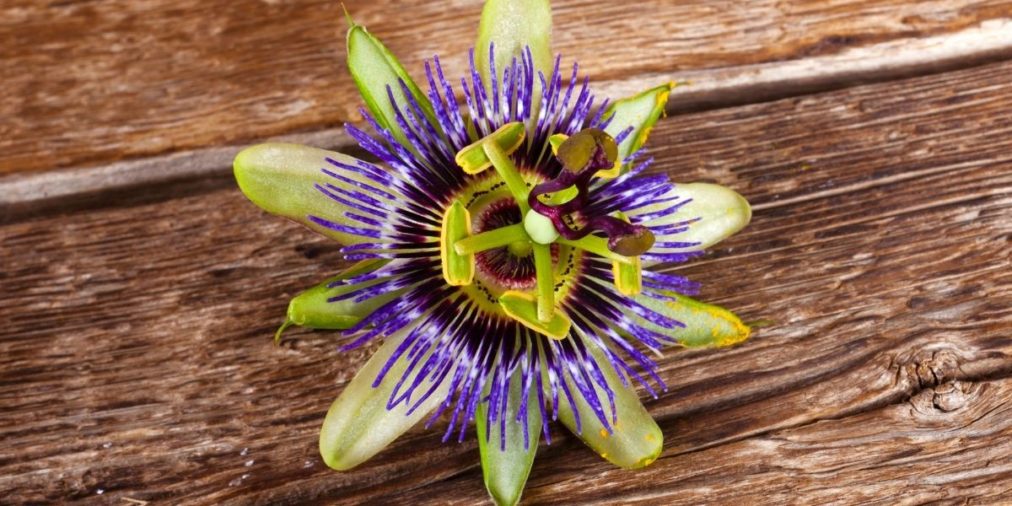
Lemon Balm
Lemon balm is an herb that can calm the nervous system and reduce anxiety, plus it helps to boost our mood and cognition.
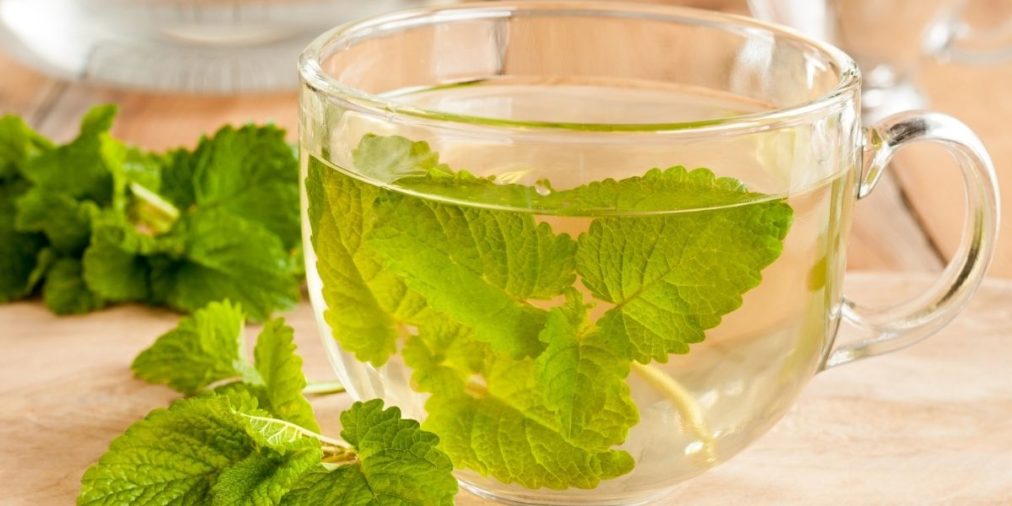
Holy Basil
Holy basil, or tulsi, is an adaptogen, which is a category of plants that help us adapt to physical or mental stress. Holy basil supports mental health by lowering stress and anxiety, as well as reducing depression.
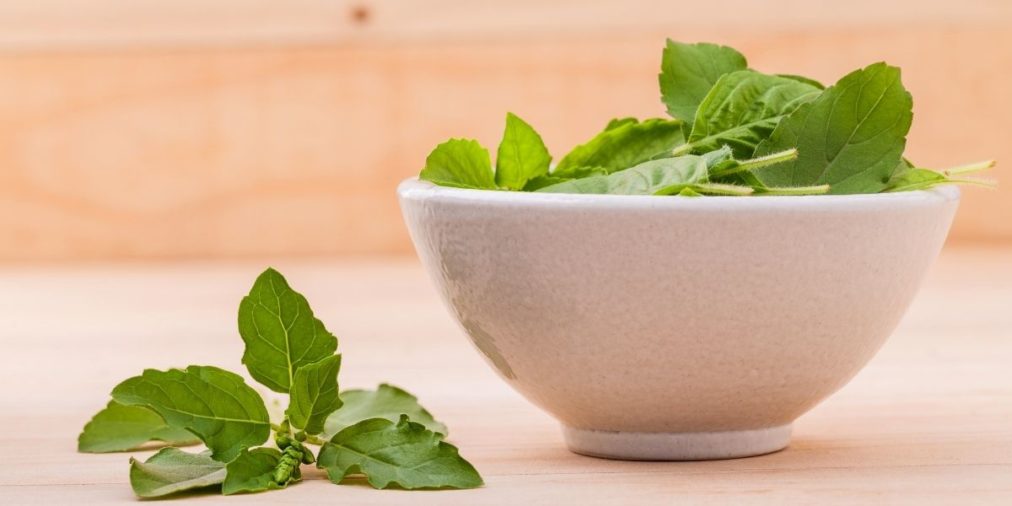
Chamomile
Chamomile soothes our nerves and helps us to relax. Evidence indicates it can help reduce anxiety levels and depression.
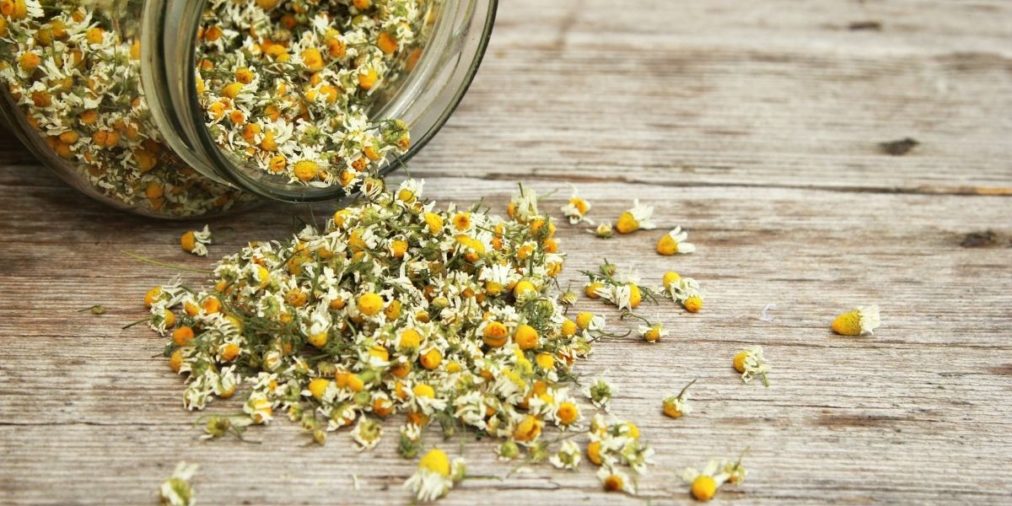
Herbs for Immune Health
Garlic
Garlic is one of my favourite cold and flu remedies. Garlic is fantastic for banishing symptoms of colds and flu, and for supporting overall immune system health. One of garlic’s compound, called allicin, has antimicrobial and antibacterial properties that can help protect us from infections.
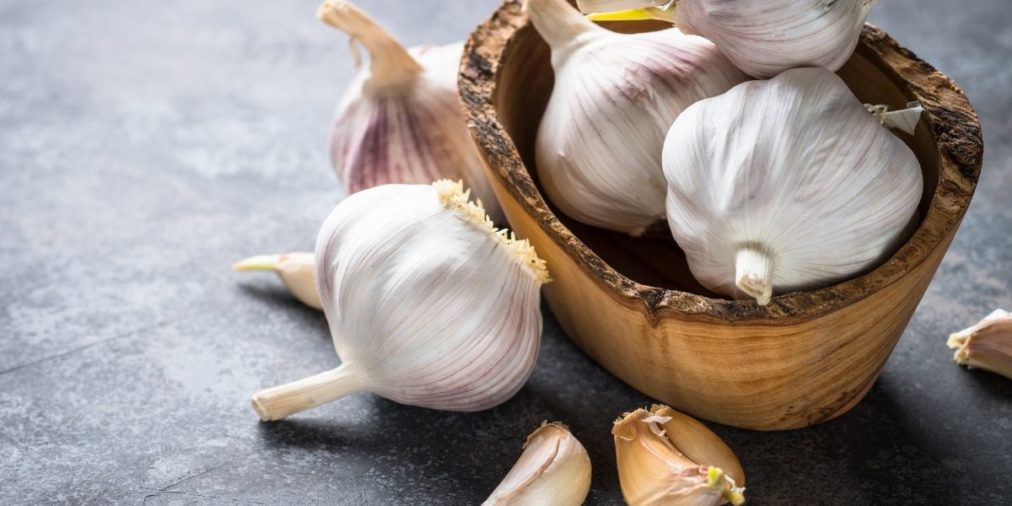
Reishi
Reishi is the queen of the medicinal mushroom world. Reishi mushrooms contain beta-glucans, compounds that help to modulate the immune system by enhancing or dialing it down as needed.
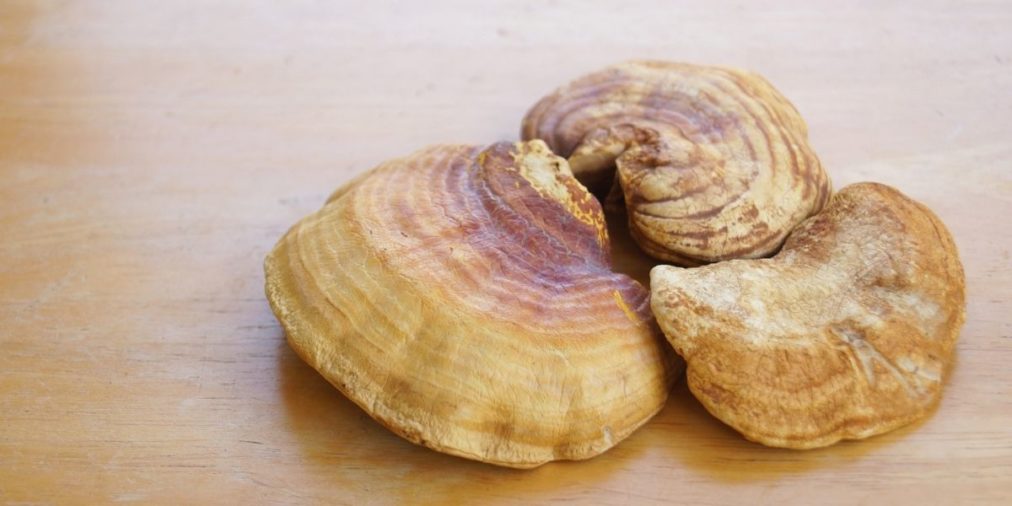
Chaga
This one is the king of the mushrooms and you’ll often find me hunting for it in Southern Ontario! Like reishi, chaga helps to support the immune system and has anti-cancer properties.
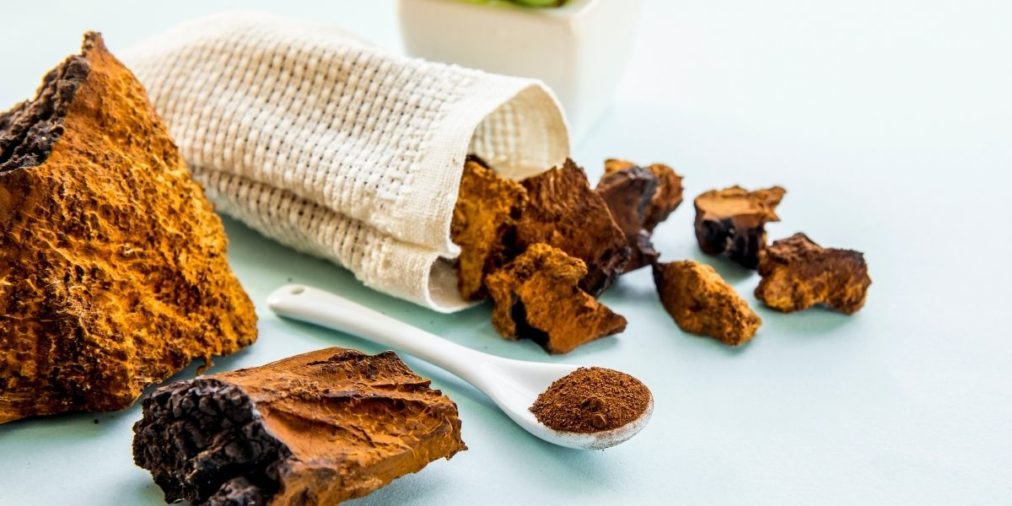
Turmeric
In my view, there is very little that fresh or dried turmeric can’t do. Turmeric is a highly anti-inflammatory spice. It has anti-microbial, antioxidant and anti-cancer properties, and it can aid with respiratory conditions as well, like bronchitis and coughs. There are many unconventional ways to enjoy turmeric, but one of my faves is a basic turmeric tea.
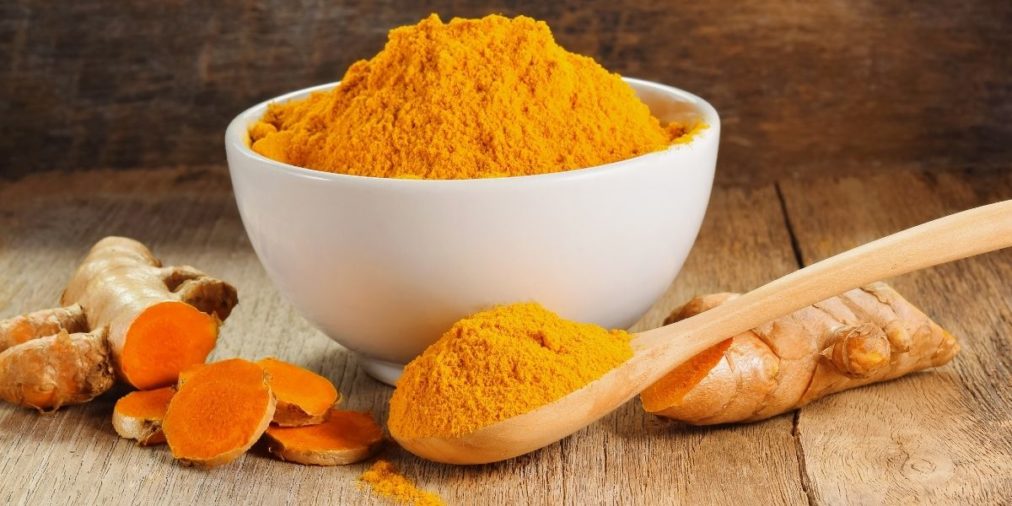
Echinacea
Echinacea modulates and enchances the immune system, strengthens the T-cells that help ward off pathogens, helps with seasonal allergies, and it can help prevent and treat the common cold.
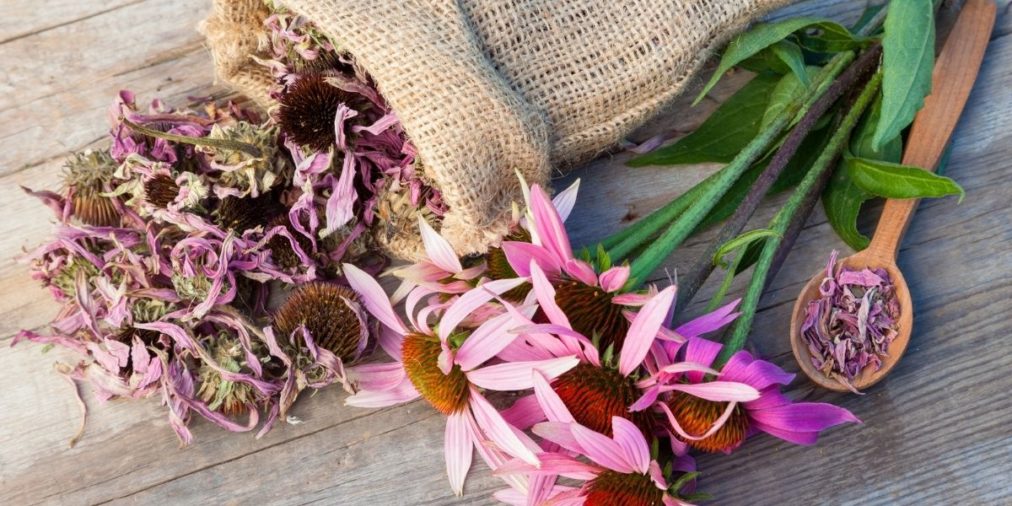
Finding Quality Herbs
There are a few ways you’ll find the herbs I’ve mentioned above:
- Fresh
- Dried
- Essential oils
In order to reap the benefits of these herbs, quality matters. If an herb doesn’t have much of an odour or flavour, it’s likely not going to offer you much health-wise.
For essentials oils, my go-to is always Living Libations. Fresh herbs can be located at your local health food store or grocery store. Dried herbs can be found locally at health food stores or bulk herbal dispensaries. When purchasing fresh and especially dried herbs, I like to shop at stores that have a high turnover so you’re not buying licorice or chaga that’s been sitting around for months.
You can also purchase loads of herbs online (I like Mountain Rose in the US, Harmonic Arts, and OM Foods here in Canada).
Storing Herbs
Always store your herbs in a well-sealed container, whether you are storing fresh herbs in your fridge or dried ones in your pantry. Skip the kitchen disposables and plastic, and opt for glass (my fave) or stainless steel containers.
Choosing Herb Combos
For therapeutic purposes, it is helpful to use herbs in combination rather than on their own. They tend to have synergistic properties, meaning they can work together.
Try 2–3 of the herbs in each section above in a single recipe to start, especially if you are new to these ingredients. For example, begin with using ginger and mint to create a digestive-friendly tea. Then, as you explore more flavours, you can experiment with additional herbs or mix and match from the different categories.
Have fun with it!
herb Recipes to Try
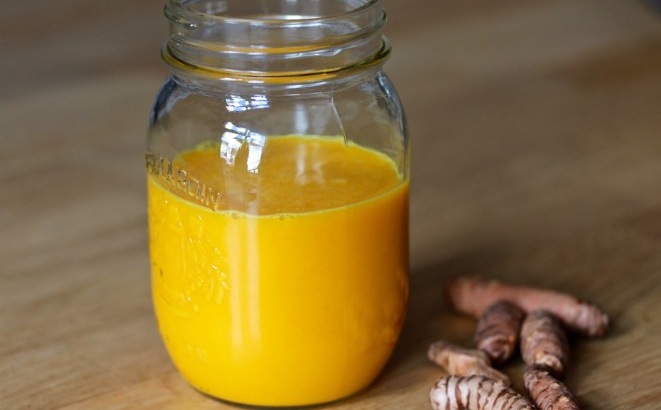
Some fun herbal recipes to get you started using these tasty and beneficial herbs.
- Ginger Tea Recipe
- Cold and Flu Turmeric Tonic
- Chocolate Chip Matcha Mint Ice Cream
- Digestive Delight
- Homemade Astringent Toner
Further Reading, Learning and Listening
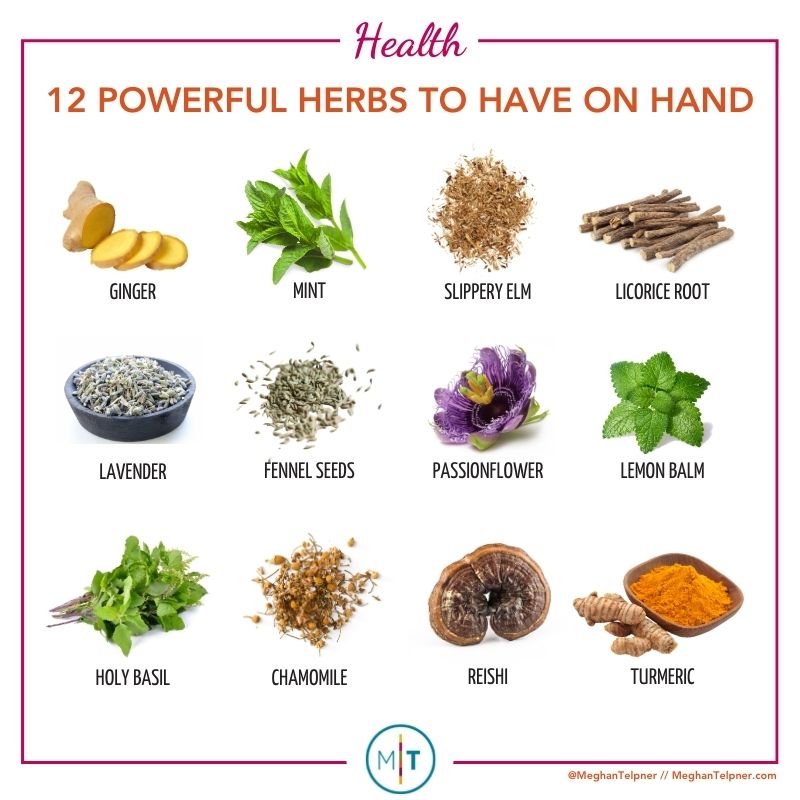
Free Resource Library
Enjoy more than 40 downloadable guides, recipes, and resources.















